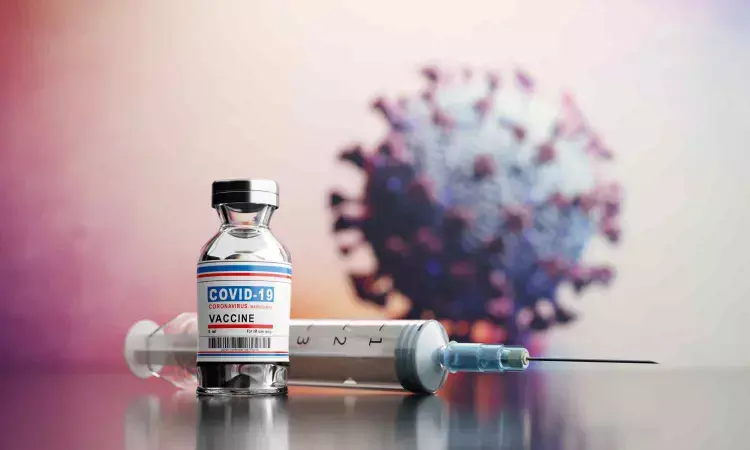- Home
- Medical news & Guidelines
- Anesthesiology
- Cardiology and CTVS
- Critical Care
- Dentistry
- Dermatology
- Diabetes and Endocrinology
- ENT
- Gastroenterology
- Medicine
- Nephrology
- Neurology
- Obstretics-Gynaecology
- Oncology
- Ophthalmology
- Orthopaedics
- Pediatrics-Neonatology
- Psychiatry
- Pulmonology
- Radiology
- Surgery
- Urology
- Laboratory Medicine
- Diet
- Nursing
- Paramedical
- Physiotherapy
- Health news
- Fact Check
- Bone Health Fact Check
- Brain Health Fact Check
- Cancer Related Fact Check
- Child Care Fact Check
- Dental and oral health fact check
- Diabetes and metabolic health fact check
- Diet and Nutrition Fact Check
- Eye and ENT Care Fact Check
- Fitness fact check
- Gut health fact check
- Heart health fact check
- Kidney health fact check
- Medical education fact check
- Men's health fact check
- Respiratory fact check
- Skin and hair care fact check
- Vaccine and Immunization fact check
- Women's health fact check
- AYUSH
- State News
- Andaman and Nicobar Islands
- Andhra Pradesh
- Arunachal Pradesh
- Assam
- Bihar
- Chandigarh
- Chattisgarh
- Dadra and Nagar Haveli
- Daman and Diu
- Delhi
- Goa
- Gujarat
- Haryana
- Himachal Pradesh
- Jammu & Kashmir
- Jharkhand
- Karnataka
- Kerala
- Ladakh
- Lakshadweep
- Madhya Pradesh
- Maharashtra
- Manipur
- Meghalaya
- Mizoram
- Nagaland
- Odisha
- Puducherry
- Punjab
- Rajasthan
- Sikkim
- Tamil Nadu
- Telangana
- Tripura
- Uttar Pradesh
- Uttrakhand
- West Bengal
- Medical Education
- Industry
Increased risk of new-onset diabetes observed in children following COVID-19 infection: Study

A new study published in the Journal of American Medical Association found that children and adolescents aged 10 to 19 who were diagnosed with COVID-19 had a higher chance of an incident diagnosis of type 2 diabetes than the ones who were diagnosed with other respiratory diseases. The patients who are infected with SARS-CoV-2 are at risk for developing diabetes and a host of other chronic illnesses. The Centres for Disease Control and Prevention (CDC) recorded an increased incidence of diabetes among patients under the age of 18 following COVID-19 based on health claims data, but, did not differentiate between type 1 (T1D) and type 2 (T2D) diabetes, even though the majority of research involved adults. Margaret Miller and the team carried out this investigation to look out if the likelihood of incident T2D diagnosis in children is elevated in the 6 months following SARS-CoV-2 infection.
The electronic health records obtained through TriNetX analytics platforms from January 1, 2020, to December 31, 2022, were utilized in this retrospective cohort research. Children without diabetes who were between the ages of 10 and 19 were included. Data analysis was carried out from August 15 to September 15, 2023, with further studies conducted in January 20 and August 8 to 13, 2024. The primary exposure was a diagnosis of COVID-19 or a respiratory illness that was not COVID-19. The main result was the comparison of new T2D diagnoses at 1, 3, and 6 months following index infection by risk ratios (RRs) and 95% confidence intervals (CIs).
After propensity score matching, a total of 3,06,801 patients with COVID-19 and 3,06,801 patients with other respiratory infections (ORIs) but no reported COVID-19 were included in the primary research group, which comprised 6,13,602 individuals. When compared to the matched group with ORIs, the risk of receiving a new diagnosis of T2D was substantially higher from the day of infection to 1, 3, and 6 months following COVID-19 diagnosis. The hospitalized group and the subpopulation categorized as overweight or obese had similar outcomes. Overall, the pediatric patients aged 10 to 19 years had a higher likelihood of a new T2D diagnosis following COVID-19 infection than other children with ORIs.
Source:
Miller, M. G., Terebuh, P., Kaelber, D. C., Xu, R., & Davis, P. B. (2024). SARS-CoV-2 Infection and New-Onset Type 2 Diabetes Among Pediatric Patients, 2020 to 2022. In JAMA Network Open (Vol. 7, Issue 10, p. e2439444). American Medical Association (AMA). https://doi.org/10.1001/jamanetworkopen.2024.39444
Neuroscience Masters graduate
Jacinthlyn Sylvia, a Neuroscience Master's graduate from Chennai has worked extensively in deciphering the neurobiology of cognition and motor control in aging. She also has spread-out exposure to Neurosurgery from her Bachelor’s. She is currently involved in active Neuro-Oncology research. She is an upcoming neuroscientist with a fiery passion for writing. Her news cover at Medical Dialogues feature recent discoveries and updates from the healthcare and biomedical research fields. She can be reached at editorial@medicaldialogues.in
Dr Kamal Kant Kohli-MBBS, DTCD- a chest specialist with more than 30 years of practice and a flair for writing clinical articles, Dr Kamal Kant Kohli joined Medical Dialogues as a Chief Editor of Medical News. Besides writing articles, as an editor, he proofreads and verifies all the medical content published on Medical Dialogues including those coming from journals, studies,medical conferences,guidelines etc. Email: drkohli@medicaldialogues.in. Contact no. 011-43720751


